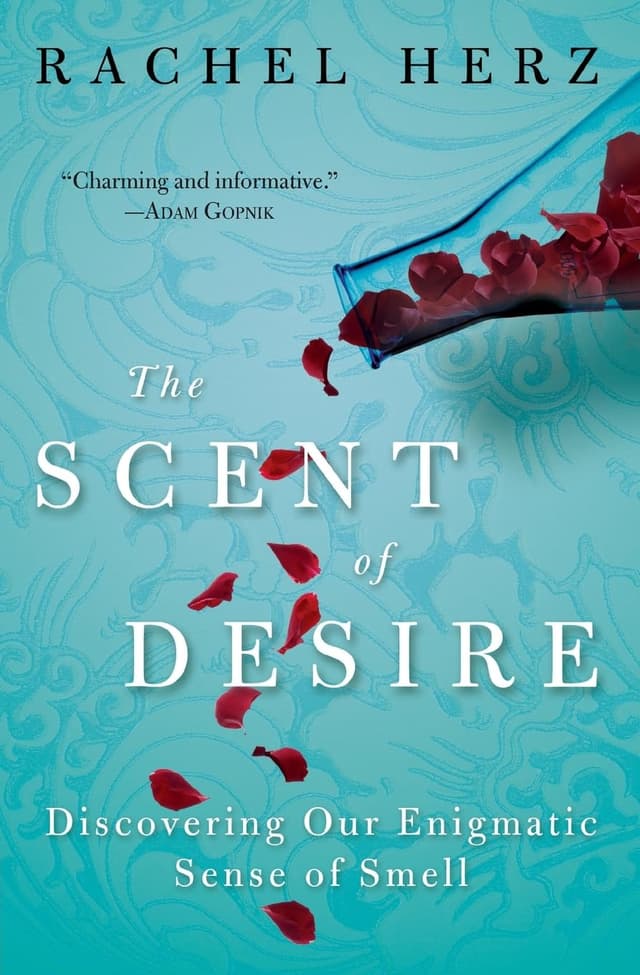Colin Nagy | November 10, 2020
Why is this interesting? - The Sense Edition
On smell, memory, and newfound appreciation
Recommended Products

The book explores the psychological effects of vision loss and smell loss, highlighting that while patients who lost their vision were initially more traumatized, over time they acclimated more significantly than the patients who had lost their sense of smell—who, a year later, actually reported a more enduring decrease in their quality of life than the patients who had gone blind.

Abercrombie and Fitch have reportedly spent over 3 million dollars on scent-spraying machines for its flagship stores using this fragrance.
Colin here. Since the early days of COVID one of the strangest elements has been the loss of smell many experience. While it took months to add to the list of official symptoms, it's now a widely agreed upon sign that you likely have the virus. And while the focus has rightly been on all of the other ways the virus can ravage a human body in the short and long term, the loss of smell has mostly been ignored outside its use as a warning sign.
Unfortunately, this is par for the course for one of our most underappreciated and misunderstood senses. We take for granted the ability to smell the nuances of a beautiful Vetiver fragrance, the smell of bread baking, and of course, the role smell plays in how we experience food and drink. These things are very much part of our lives, but sometimes don’t get as much focus as the things we see or can touch.
Why is this interesting?
Vogue writer, Leslie Jamison, who experienced the loss of this sense highlights why smell doesn’t get its due:
Helen Keller once called smell the “fallen angel” of our senses because we don’t appreciate it fully. Though her own sense of smell, sharpened by her lack of vision and hearing, was acute enough to detect a storm in the air before it arrived—and she recognized smell as “a potent wizard that transports us across thousands of miles and all the years we have lived”—she also knew how much we took its wizardry for granted.
In the book, Scent of Desire, the psychological effects of vision loss and smell loss were compared, and found, “While patients who lost their vision were initially more traumatized, over time they acclimated more significantly than the patients who had lost their sense of smell—who, a year later, actually reported a more enduring decrease in their quality of life than the patients who had gone blind.”
Scent is a hidden, and highly emotional superpower. When I walk into the Langham Hotel in London, their rose and ginger signature scent, as well as the scent of the flowers, let me know exactly where I am. Hotels and hospitality companies are obsessed with making sure there’s a strong, often invisible emotional connection to their properties. It’s the same case for retail. Abercrombie and Fitch have reportedly spent over 3 million dollars on scent-spraying machines for its flagship stores. While there’s a lot of emphasis on aesthetics and fabrics that feel nice to the touch, if you haven't considered scent, the experience is incomplete.
The Vogue writer takes this to an emotional territory:
If I learned anything through lack, it took the form of yearning and memory, a library of all the smells I missed: the yeasty bloom of my mom’s homemade bread fresh from the oven and the treacly sweetness of honey melting onto its brown heel; the smoke of clove cigarettes on an Iowa porch in the chill autumn months when, as a graduate student, I was too shy to make small talk with the other writers, so I kept myself busy smoking instead; the intoxicating smell of gasoline after I got my driver’s license; or, decades later, the aquatic ribbons of chlorine lifting through the sidewalk vents of an underground pool near my Brooklyn apartment. In the bleak depths of winter, sudden wafts from that pool on my morning commute would remind me of the existence of summer.
Sometimes loss, or the discussion around loss, is enough to make people take stock of things that previously existed outside of our day-to-day appreciation. One optimistic outcome for the pandemic is that we all come out with a bit more appreciation for daily wonders and empathy for one another. There’s a reason the saying is “stop and smell the roses,” I guess. (CJN)
Bandcamp of the day:
One of our favorite electronic artists, Donnacha Costello, has his discography available on Bandcamp. Make sure to check out his Color Series 12 inch collection, which is some of the warmest, most beautiful sounding minimal techno ever released. Truly essential stuff. (CJN)
Quick Links:
A case the internet can’t crack. Thanks to SB. (CJN)
A great tweet thread on a flying adventure. Thanks to RPB. (CJN)
WSJ on private 5G networks (CJN)
Thanks for reading,
Noah (NRB) & Colin (CJN)
—
Why is this interesting? is a daily email from Noah Brier & Colin Nagy (and friends!) about interesting things. If you’ve enjoyed this edition, please consider forwarding it to a friend. If you’re reading it for the first time, consider subscribing (it’s free!).

